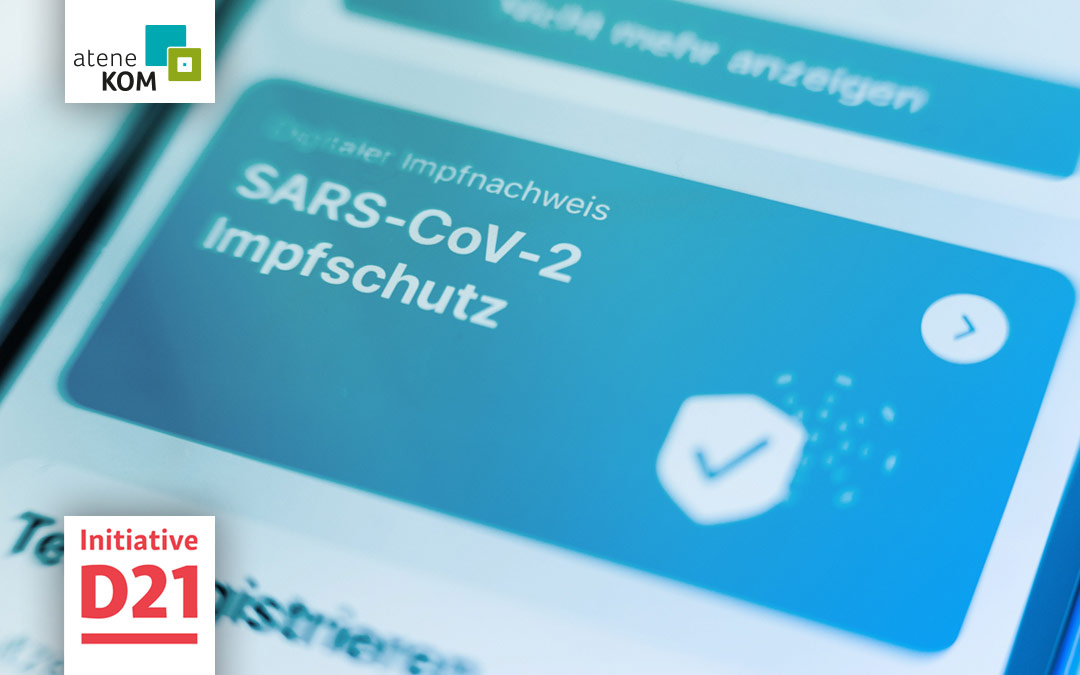Almost everyone knows it, and many people want it: digital proof of vaccination has been available since mid-June and nine out of ten citizens in Germany (87%) already know that it exists. This is the result of a recent survey of almost 8,000 people in Germany as part of the eGovernment Monitor 2021 by Initiative D21 and the Technical University of Munich, supported by aconium GmbH as a premium partner. At least as important as that is the fact that the majority of people also want to use the proof themselves.
Around a quarter of respondents (24%) intend to use it exclusively in digital form, while just under half (49%) intend to use it in conjunction with analog proof. In the survey conducted by Kantar, only one in five stated that they only intended to use analog – i.e. paper-based – proof.
The age of the respondents also plays a role in their preferred method of use. The proportion of those who want to use the proof exclusively digitally, i.e. via smartphone, is significantly higher among younger people. Among 18 to 29-year-olds, this group makes up a good third (34%), but among the over-70s it is still one in six (14%). Researchers at the Technical University of Munich attribute the high level of awareness and willingness to use digital proof to several factors. On the one hand, the proof is a government administrative service with a very specific use case, says Prof. Dr. Helmut Krcmar. If you want to go to a restaurant or travel, you can simply get to your destination faster with your ID. The business information scientist also attributes the success to the broad government information campaign and easy access via the well-known coronavirus warning apps. And last but not least: “Personal contacts on site with GPs, pharmacies and in vaccination centers also make it easier to use and help to minimize fear of contact with the digital ID card,” says Krcmar.
40 percent get their vaccination appointment online
The study, which is part of the eGovernment Monitor 2021, also examined people’s satisfaction with the allocation of vaccination appointments. According to the study, four out of five respondents (81%) were satisfied with how their appointments were allocated. The increasing digitalization of society is also noticeable in this context: 40 percent chose the Internet to get an appointment. Only a third (33%) used the telephone. However, the most common method of contact for vaccination appointments was in person (56%). Overall, the vast majority (84%) tried to make an appointment themselves.
The current results are part of the eGovernment Monitor 2021 of the D21 initiative, which aconium GmbH supports as a premium partner. The complete study on the use and acceptance of digital administrative services will be published on October 19, 2021. The survey was conducted online by the Kantar Institute from June 1 to 21, 2021.
The network for the digital society – Initiative D21 for short – is an association of around 200 member companies and institutions as well as stakeholders from politics, administration, business and science. aconium is a long-standing partner of the non-profit association D21.
The results of the study on vaccination can be found here: https://initiatived21.de/digitaler-impfnachweis/

